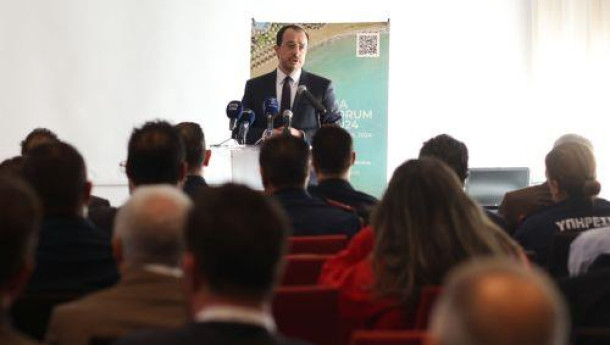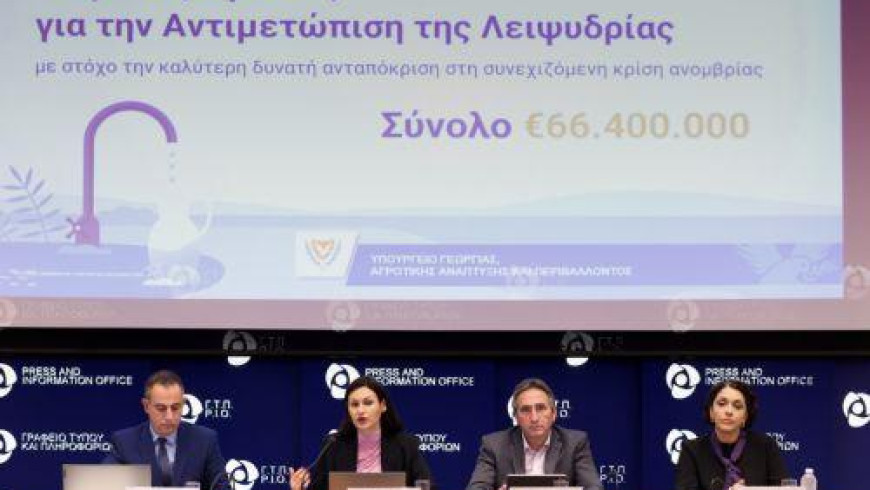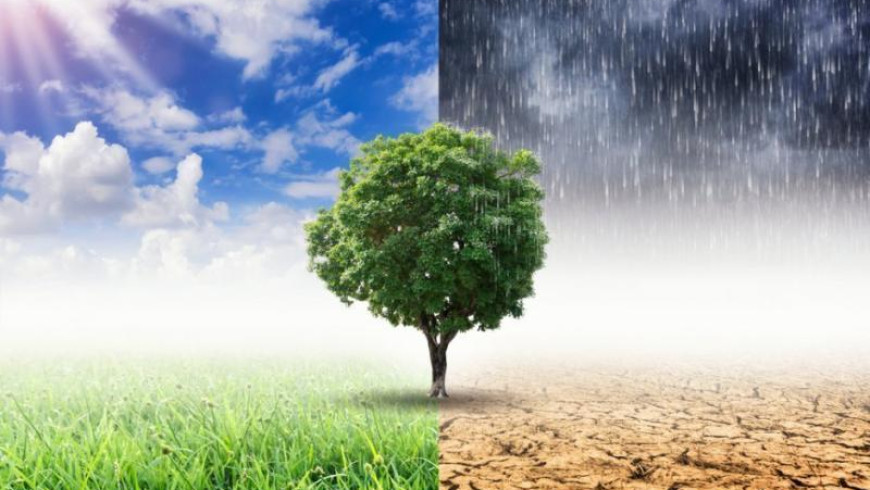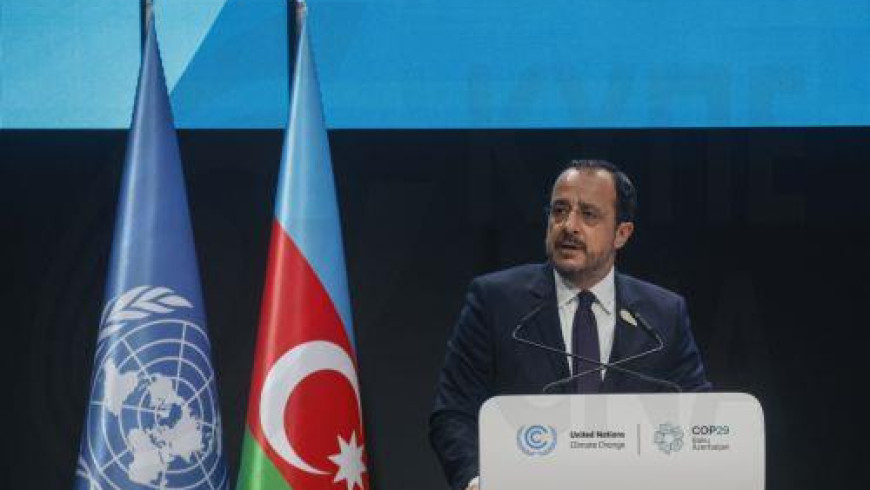
Cyprus has relaunched the Eastern Mediterranean and Middle East Climate Change Initiative, aiming to develop synergies to mitigate the impact of climate change with a focus on cross-border projects, President of the Republic of Cyprus Nicos Christodoulides said on Thursday.
Addressing the Nicosia Risk Forum, taking place in Larnaca with the participation of several countries and international organisations, entitled "Enhancing Resilience to Disasters in the Mediterranean Region," he said that "climate change is moving with unprecedented speed" as "we are reaching the worst climate projections much faster than anticipated."
The President remarked that the recent COP 29 in Baku, where he had the opportunity to present Cyprus’ position, "was a step towards a positive direction, but there is much more to do." "Extreme weather events are impacting our ecosystems, our economies, including agriculture and tourism, our communities and the quality of life of our people. They act as a stark warning and also highlight the urgent need for decisive, coordinated action. We need immediate, targeted responses at both the national and regional levels," he noted.
At this point, he reminded that Cyprus has taken proactive steps by implementing a National Adaptation Strategy since 2017. "We are currently updating this Strategy to strengthen our capacity to manage complex and interlinked climate risks. Despite our small carbon footprint, Cyprus is committed to contributing to global emissions reduction," he added
The Republic of Cyprus, said President Christodoulides, firmly supports the efforts of the European Union and those of the Union for the Mediterranean to promote an agenda that will support our region to face the upcoming challenges of climate change. "I am very pleased to note that later today the Union for the Mediterranean’s Regional Dialogue Platform on Civil Protection will take place as part of the Risk Forum with an even broader audience," he remarked.
At the same time, he said Cyprus has an ambitious plan to reinforce its aerial firefighting capacity by acquiring 10 new aerial means. A technological enforcement programme is also underway with the adoption of a “next generation 112” that will be "our channel of two-way communication with our local communities, providing them with a way to report emergencies in a comprehensive manner and at the same time it will give the opportunity to our national civil protection mechanism to increase its crisis management abilities and to give lifesaving information to the wider public."
In his address, he also underlined the importance of prevention, noting that the focus of the Cypriot authorities is on fire prevention through the implementation of a 'holistic' system that is currently under design "and we are currently in the phase of designing a second phase that foresees the installation of a number of long-range sensors combined with aerial detection with the use of technology, UAVs and drones."
President Christodoulides also spoke about the humanitarian crisis in Gaza and the operation of the Amalthea maritime corridor which is a "testament to what a small country can achieve by fostering good relations with its neighbours. Civil protection grows on solidarity". Amalthea was formulated and put into operation with Cyprus' partners – the EU, UAE, the US, Israel and a number of Arab countries.
He also referred to the recent MED9 Meeting in Paphos noting that given that the Mediterranean region is particularly vulnerable to the effects of climate change, including natural disasters, extreme weather conditions, desertification, "we included climate change on the agenda of the discussions between EU member states and the King of Jordan."














 3287.99
3287.99 1275.09
1275.09
